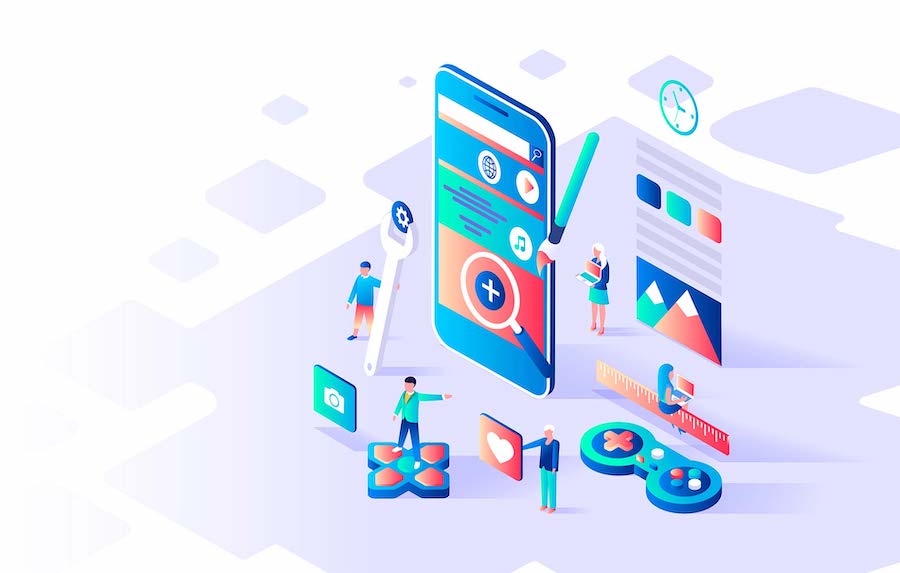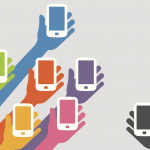What are all the different phases of mobile app development?

Mobile app development process is a phased and stage-wise and leads to the expected end of creating mobile apps adaptable for a range of uses. A mobile app goes through a detailed and thorough phase development to ensure and guarantee its seamless application and usage for the end user.
It is good to know that, all the best mobile applications operational today started with a great idea. And this is true with all the greatest innovations and inventions recorded in history. It is these ideas that are bettered and refined into precise foundations for mobile applications. For Mobile App Development Singapore these are pertinent steps, stage and phases to developing new apps.
The Detailed and Full Phase-wise Life of Mobile App Development
1. Mobile App Ideation Phase
The mobile app ideation phase is all about taking the idea and refining it with design and development details of a new mobile application. Before creating and making a new mobile app, answer some vital questions both from the user and developer point of view.
These questions range from competitive advantage, integrated infrastructure, user friendliness/interactivity and value proposition to the mobile app users when the mobile app idea is certified, it is easy to begin putting some specifics on the mobile app design phase.
2. Mobile App Design Phase
The mobile apps designs phase reveals and tells the nature of the mobile app to be designed and built. And the kind of app development technology platform to be adopted. When app design and development teams come together, they all know the project requirements.
In this app development phase, workflow design and chart for the project sets the boundaries for responsibilities. It defines the actual role of the design and development team, core responsibility, and function. The entire app design and development project cost estimate and rationalization are settled and known.
An app prototype design is made to know it’s functionality and feasibility. The prototype reveals the feasibility if integrating all modern technologies as well as the possibility of possibility attaining app aims set from the start.
3. Mobile App Development Phase
Mobile app development is more technical and defines technical architecture, technology stack, and development milestones. Mobile app development projects consist of three major parts: back-end/server technology, API(s) and app front-end.
- Back-End/Server : Back-end or server pertains to the database and server-side objects vital support app functions.
- Application Programming Interface (API) : Application Programming Interface (API) is a communication method that takes place between the app and the back-end server/database
- Front-End : Front-end refers to the native mobile app part an end-user uses all the time or frequently. Essentially, mobile apps have an interactive user experience that adapts API and back-end to manage data.
4. Mobile App Testing Phase
With the successful finishing of the development stage and clearing all initial app pre-test at the development phase, the app is ready for blown technical mobile app testing on several parameters. It is now time to ensure the software functions as programmed and developed.
The development phase is iterative. The testing phase confirms every attributed aspect of the new app is tested so that all bugs or errors in the code or program are seen and rectified at the earliest opportunity
The testing phase performs several repeated tests with regular reviews to know everything is in alignment. The app goes through further testing to ensure all the components of the mobile app work in harmony and unison. When all potential and known sources of under-performance are cleared the new mobile app is ready for launch into the market.
5. Mobile App Deployment Stage Phase
After designing, developing and testing of the app, the next phase is mobile app deployment. The mobile app may have undergone thorough app testing to check for any minor or major functionality issues. When the app is certified ready for deployment, the sales and marketing team create enough interest and hype around the mobile app emphasizing its strengths and application advantages.
From short videos on social media, online ads, articles, blogs write-ups, influencer endorsements and push notifications and subscriptions. That is why knowing the target audience simplifies and makes promotion direct and target specific.
Expanding the target market by announcing it to everyone with interest in the app before its launch adds to earlier breakthroughs at the deployment phase. Similarly, promoting the app release via emails and mentions on social media channels enhances deployment phase results. It also helps with app user experience ratings, downloads and installs.
The mobile app deployment and marketing campaigns are crucial to apps success and penetration in the market. Deployment and marketing are interconnected.
6. Mobile App Maintenance and Update
Mobile applications have a life-cycle of the app development and follow up on the functioning side with the customer for the first few months of deployment. It’s vital after all app development and deployment to get firsthand user experience, collect vital functionality and performance data, provide necessary updates, maintenance and technical evaluation regularly.
These technical inputs and information collected in the process help avoid similar situations like low app retention rates or functionality glitches in real-time use. Mobiles app maintenance and update phase is a post-development phase critical to the future success of app development endeavor.
App Development Technologies and Operating Systems
Different web apps require and use various programming languages and databases for the back-end.
From native mobile apps, web apps, hybrid apps and cross-platform apps, development technology choice is according to each mobile OS platform.
Mobile technology evolves fast with newer updated versions of mobile app platforms frequently making mew app agility is critical and with every app development milestone, the mobile app is ready for the app testing phase to validate its vital functionality parameters.
Summary
Every mobile app development is a comprehensive push for excellence functional wise, design-wise and long term performance.
____
source: My Story

